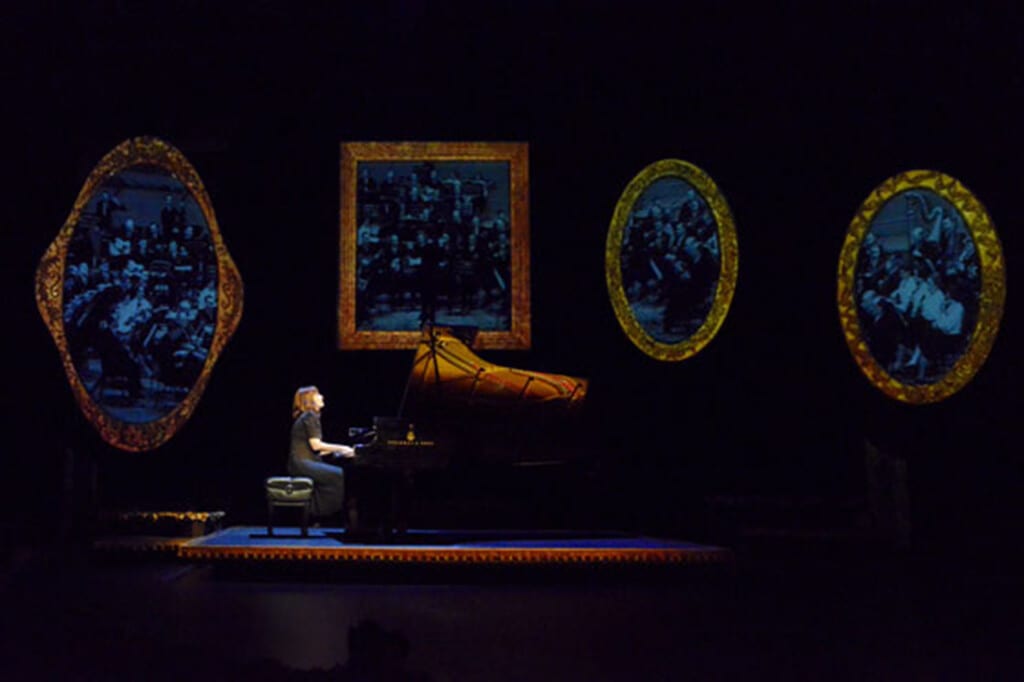The tale of Lisa Jura is an extraordinary one: a young Jewish girl learning the piano in Vienna, she is loaded onto the Kindertransport to England after the events of Kristallnacht, where she must wait out the war and keep up her piano, her one remaining link to her family and previous life. Her daughter, the concert pianist Mona Golabek, tells the story and there isn’t a dry eye in the house by the end.
Mona Golabek tells her Mother’s story with charm, as only a daughter could tell her mother’s story. Performing as Lisa for most of the show, you can sense her love and reverence for this narrative handed down to her during her own piano lessons, and she captures the audience easily. Golabek is not a natural actor however, and the performance is fairly direct and descriptive, with little variation. She becomes other characters by widening her eyes and broadly gesturing, before going back to her neutral role. While she may not be an actor, she is still a good storyteller, an endearing personality with a clear voice, and she manages to keep the audience interested for the most part. What is lost in theatrical dexterity is mostly made up for by her performances on the beautiful grand piano that occupies centre stage. Her sessions at the piano weave well into the narrative, bringing Lisa’s personality and world to life. They carry the dramatic tension often, using appropriate music to depict the blitz, or a garments factory, or their relevance in Lisa’s life. It is a treat to listen to her perform these melodies in the context of her mother’s story, and heightens the emotions of the performer and audience.
The script is functional, telling the story perfectly well in a simple, straightforward style. The beginning is a little overlong, and the most striking line is towards the end, where Golabek (as Golabek) thanks “all the parents who had the courage to say ‘Goodbye’.” This struck a perceptible note with the audience, most likely due to its increasing relevance to children currently being sent abroad on the promise of a safer life from war-torn parts of the globe, and Britain’s unwillingness to provide shelter. Golabeks’ praise of the courage and nobility of Britain accepting 10, 000 Jewish children should make many people uneasy in their attitudes towards current affairs.
These sentiments, and the piece in general, also deeply affected the more elderly members of the audience, many of whom gave the show a standing ovation. However, I believe this had more to do with the tale and the music rather than the actual performance.
The narrative is helped along though a few projections onto four hung ornate frames, and while these are largely welcome they can be a little heavy handed. To see Beethoven’s vivid grimace loom up centre stage during the gentle Moonlight Sonata was a disquieting experience to say the least. The set uses golden picture frames and edges to further draw upon Lisa’s classical appreciations, but all that black and gold is a little overwhelming and ostentatious for an honest, true tale. I did like the huge partially hidden frame however, hinting towards the “Bigger Picture”.
This is an extraordinary story rather than a great piece of theatre, and it draws its audience in with warmth and wonderful music. The staging and performance aren’t of high quality, but it is a personal tale that the audience are lucky to be invited to share in. And the soundtrack is marvelous.

